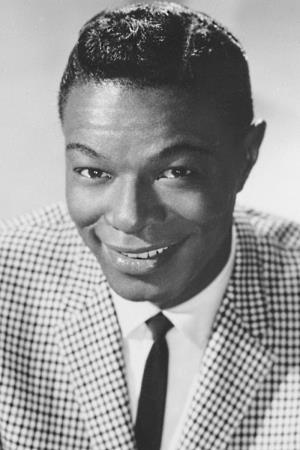
From Wikipedia, the free encyclopedia
Nathaniel Adams Coles (March 17, 1919 – February 15, 1965), known professionally as Nat King Cole, was an American jazz pianist and vocalist. He recorded over one hundred songs that became hits on the pop charts. His trio was the model for small jazz ensembles that followed. Cole also acted in films and on television and performed on Broadway. He was the first African American man to host an American television series.
Gender: Male
Born On: 17-Mar-1919
Last Info Sync: 4/29/2021 9:17:00 AM
Nat King Cole's Filmography on TV
List of programs starring Nat King Cole on tv. Programs are sorted in order of last seen on tv. Last updated: Nov 22, 2024 9:45 PM
Cat Ballou (1965)
A woman seeking revenge for her murdered father hires a famous gunman, but he's very different from what she expects.
An Evening with Nat King Cole (1963)
Broadcast on the BBC in 1961, this performance by legendary vocalist Nat King Cole features many of his greatest hits, including "It's Only a Paper Moon," "Unforgettable," "Those Lazy, Hazy, Crazy Days of Summer," "Mona Lisa" and "Sweet Lorraine." Missing for more than three decades, this incredibly rare concert program presents 14 classic songs and is one of the few Cole performances filmed in color.
Stars on Parade (1944)
In this musical showcase, two aspiring stars attempt to wow a pair of talent scouts with their stellar abilities. Songs include "My Heart Isn't in It" (Jack Lawrence), "It's Love, Love, Love" (Mack David, Joan Whitney, Alex Kramer), "When They Ask about You" (Sammy Stept), "Jumpin' at the Jubilee" (Ben Carter, Mayes Marshall), "Taking Care of You" (Lou Brown, Harry Akst), "Where Am I Without You?" (Don Raye, Gene De Paul), "Two Hearts in the Dark" (Dave Franklin), "Somewhere This Side of Heaven,
Citizen K (1941)
Newspaper magnate, Charles Foster Kane is taken from his mother as a boy and made the ward of a rich industrialist. As a result, every well-meaning, tyrannical or self-destructive move he makes for the rest of his life appears in some way to be a reaction to that deeply wounding event.
Citizen Kane (1941)
Newspaper magnate, Charles Foster Kane is taken from his mother as a boy and made the ward of a rich industrialist. As a result, every well-meaning, tyrannical or self-destructive move he makes for the rest of his life appears in some way to be a reaction to that deeply wounding event.
